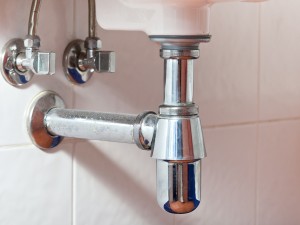Healthy drains are a crucial piece of any working plumbing system. Blocked drains aren’t only messy and unappealing, they can also lead to various severe problems — such as the prevalence of bacteria and germs, and even structural damage.
Experts advise that drain cleaning should take place on an “as-needed” basis — assuming that the homeowner can recognize warning signs that may indicate issues and clogged pipes. For those who cannot predict clogs that might cause backups and costly damage, it may be useful to contact your plumber and stick to a schedule of professional cleaning.
Why Schedule Regular Drain Cleaning?
Often, the most crucial reason to schedule regular drain cleaning is to help prevent major plumbing emergencies throughout your home. As minor as issues might seem, even the smallest blockages can grow to the point where they completely prevent the flow of waste and water through pipes. When a problem grows particularly threatening, it’ll only be a matter of time before you’re experiencing a sewage backup that results in hundreds, or thousands of dollars in plumbing repairs and water damage.
Grease, soap, and fat are some of the primary causes for drain blockage, as they accumulate within pipes overtime, choking the system and preventing water from flowing smoothly. Unfortunately, these factors are a standard part of our everyday lives, and it’s impossible to prevent their access to drains. However, regular preventative cleaning can ensure that waste doesn’t lead to life-altering damages. Although semi-annual or quarterly cleaning is often enough for most households, it’s important to watch for telltale signs of drain blockage, and know if you should schedule an early appointment. For example, if water is draining slowly, or your toilet is not filling with water, you should contact a plumber immediately.
The Benefits of Regular Drain Cleaning
Perhaps the first, and most noticeable benefit of arranging for regular drain cleaning services, is that you will find your system drains more efficiently. In other words, water will not stand in the drain, gurgling down the pipes. With clean drains, sinks and water features will be less likely to overflow and the number of blockages and clogs you experience will reduce. Following are some other benefits associated with cleaning your drains on a regular basis:
-
Frequent drain cleaning helps to improve the lifespan of your plumbing system, while reducing the risk of leakage throughout the home. As various elements build up along the inside of your pipes, these materials can corrode your plumbing system, leading to damage and expensive repairs in the future. Having your pipes cleaned can reduce the chance of such damages occurring in the first place, therefore extending the life of existing pipes.
-
By inviting a plumber to check and clean your drains on a regular basis, you are improving your chances that this professional will catch any other underlying issues with your plumbing before they grow to be catastrophic. For instance, plumbers may notice deteriorating pipes in the home, improperly ventilated drains, root intrusions, and more. Often, plumbing problems grow more costly as time passes, and you could save thousands of dollars by catching issues early.
-
Regular cleaning can also help to reduce foul odors around the home. When drains aren’t cleaned, bacteria and mold can begin to build up, leading to unpleasant smells. What’s more, grease and food particles can accumulate within drains — particularly in commercial buildings that work with food.
Look After Your Home
It may not seem like much of a glamorous task, but regular drain cleaning is an essential part of looking after your home. Chemical deposits in pipes can lead to corrosion, and backflows can cause clogs in drains that lead to significant water damage throughout your property. Investing in regular cleaning means investing in the longevity and safety of your home.
How often do you get your drains cleaned, and do you think it is enough? Let us know in the comments below!


 FREE Live Music and Family Fun at Allied Gardens First Fridays The next Allied Gardens First Fridays Summer Concert in the Park is just around the corner. Grab your lawn chairs, bring a picnic, and get ready to meet your
FREE Live Music and Family Fun at Allied Gardens First Fridays The next Allied Gardens First Fridays Summer Concert in the Park is just around the corner. Grab your lawn chairs, bring a picnic, and get ready to meet your  Ideal Plumbing Heating Air Electrical Named Winner of 2023 Better Business Bureau Torch Awards for Ethics in San Diego (San Diego, CA – September 15, 2023) Better Business Bureau Serving the Pacific Southwest (BBB) has named Ideal Plumbing Heating
Ideal Plumbing Heating Air Electrical Named Winner of 2023 Better Business Bureau Torch Awards for Ethics in San Diego (San Diego, CA – September 15, 2023) Better Business Bureau Serving the Pacific Southwest (BBB) has named Ideal Plumbing Heating